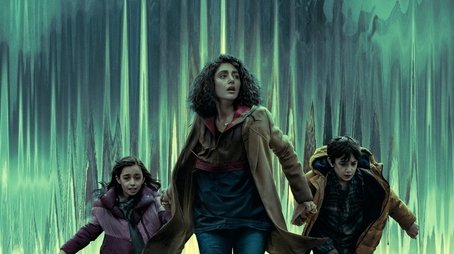
Ask Your Own Question
What is the plot?
The pilot episode of "Criminal Minds" begins with the Behavioral Analysis Unit (BAU) of the FBI being called to investigate a series of murders in Seattle, Washington. The team, led by Supervisory Special Agent Aaron Hotchner, consists of Dr. Spencer Reid, Derek Morgan, Jennifer "JJ" Jareau, and Penelope Garcia. They are tasked with profiling a serial killer who has been abducting and murdering young women.
As the team arrives in Seattle, they gather information from local law enforcement and the families of the victims. They learn that the killer has a specific pattern: he targets women who resemble each other, suggesting a personal motive. The team discusses the psychological profile of the suspect, identifying him as a "disorganized" killer who may have a history of trauma or abuse.
Hotchner and Reid delve deeper into the victims' backgrounds, uncovering that they all attended the same college and were involved in a sorority. This connection leads them to believe that the killer may have a personal vendetta against the sorority or its members. Meanwhile, Morgan and JJ interview witnesses and family members, gathering more insights into the victims' lives.
As the investigation progresses, the team receives a tip about a potential suspect, a man named "Eddie," who has a history of violence and is known to frequent the area where the women were last seen. They track him down, but he proves to be a dead end, as he has an alibi for the time of the murders. Frustrated but undeterred, the team continues to analyze the evidence, focusing on the psychological aspects of the case.
In a pivotal moment, Reid has a breakthrough when he realizes that the killer is likely someone who feels rejected by women, possibly someone who was bullied or ostracized in his youth. This insight leads the team to consider the possibility that the killer may be a former member of the sorority or someone connected to it. They begin to look into the sorority's history and any past incidents that may have involved the victims.
The team sets up a sting operation to catch the killer, using a decoy who resembles the victims. They place her in a location where the killer is likely to strike again. As the operation unfolds, tension builds, and the team anxiously monitors the situation from a distance. When the killer appears, they spring into action, but he manages to evade capture, leading to a tense chase through the streets of Seattle.
During the pursuit, Morgan confronts the killer in a dramatic showdown. The killer, desperate and cornered, reveals his motivations, expressing his anger and resentment towards women who he believes have wronged him. Morgan, using his training and experience, attempts to reason with him, but the situation escalates into a physical confrontation. After a struggle, Morgan successfully subdues the killer, and the team apprehends him.
In the aftermath, the team reflects on the case and the emotional toll it has taken on them. Hotchner emphasizes the importance of understanding the psychological motivations behind such heinous acts, while Reid contemplates the complexities of human behavior. The episode concludes with the team receiving a new case, setting the stage for their ongoing work in the field of criminal profiling.
What is the ending?
Criminal Minds, as a series, does not have a singular ending since it ran for 15 seasons. However, the final episode of the series, titled "And in the End," aired on February 19, 2020. In this episode, the BAU team faces off against their long-time nemesis, the serial killer known as "The Chameleon." The episode wraps up various character arcs and provides closure for the team.
In the expanded narrative:
The episode opens with a somber tone, as the BAU team is still reeling from the loss of one of their own, Agent Emily Prentiss, who has been deeply affected by the events leading up to this moment. The team gathers in the BAU headquarters, where they reflect on their past cases and the toll that their work has taken on them. Each member is visibly affected, showcasing a mix of determination and vulnerability.
As the team delves into the case of The Chameleon, they realize that he has been evading capture for years, using various identities to manipulate and kill. The tension builds as they piece together clues from previous cases, leading them to a location where they believe he may strike next. The urgency of the situation is palpable, and the team's camaraderie shines through as they support one another, sharing memories and motivations that drive them to protect the innocent.
In a pivotal scene, the team splits up to cover more ground. Agent Derek Morgan, with his protective instincts, takes the lead in one group, while Dr. Spencer Reid, with his analytical mind, works closely with Prentiss and Agent JJ Jareau in another. The stakes are high, and the emotional weight of their past experiences is evident in their interactions. Each character's internal struggles and motivations are laid bare, revealing their fears and hopes as they confront the darkness of their work.
As the climax approaches, the team finally confronts The Chameleon in a tense standoff. The scene is charged with adrenaline as they work together, showcasing their skills and trust in one another. The confrontation is intense, with moments of danger that test their resolve. Ultimately, they manage to apprehend The Chameleon, but not without a cost. The emotional toll of the chase weighs heavily on them, and the victory feels bittersweet.
In the aftermath, the team gathers once more, reflecting on their journey together. Each character takes a moment to express their gratitude for one another, acknowledging the bonds they have formed through their shared experiences. The episode closes with a montage of their memories, highlighting the growth and resilience of each member.
Agent Aaron Hotchner, who has been a central figure throughout the series, finds a sense of closure as he prepares to move on to a new chapter in his life, having made peace with his past. Morgan, now ready to embrace a new future, shares a heartfelt goodbye with the team. Reid, who has faced his own demons, finds solace in the friendships he has built. JJ and Prentiss, both strong and determined, reaffirm their commitment to the work they do, ready to face whatever comes next.
The final scene encapsulates the essence of the series: a family forged in the fires of adversity, united by their mission to protect and serve. As the screen fades to black, the legacy of the BAU team lives on, a testament to their courage and dedication in the face of unimaginable darkness.
Is there a post-credit scene?
The TV show "Criminal Minds," which premiered in 2005, does not typically feature post-credit scenes. The episodes generally conclude with a final scene that wraps up the case being investigated, followed by a brief closing moment that often highlights the emotional or personal reflections of the team members. These moments serve to reinforce the themes of the episode and provide insight into the characters' motivations and emotional states, but they do not extend into a post-credit sequence. Each episode is designed to stand alone, focusing on the case at hand and the dynamics within the Behavioral Analysis Unit (BAU) team.
What is the significance of the character Aaron Hotchner's leadership style in the team dynamics?
Aaron Hotchner, often referred to as 'Hotch', serves as the unit chief of the Behavioral Analysis Unit (BAU). His leadership style is characterized by a calm demeanor, decisiveness, and a strong moral compass. He often prioritizes the safety of his team and the victims they aim to save, which creates a sense of trust and respect among his colleagues. Hotch's ability to remain composed under pressure is crucial during high-stakes investigations, and his protective nature often leads him to make difficult decisions for the greater good, showcasing his internal conflict between personal sacrifice and professional duty.
How does Dr. Spencer Reid's character develop throughout the series?
Dr. Spencer Reid, a genius with an IQ of 187 and a photographic memory, initially struggles with social interactions and personal relationships due to his intellectual gifts. As the series progresses, viewers witness his growth as he learns to navigate the complexities of human emotions and relationships. His vulnerabilities, such as his struggles with loneliness and his mother's schizophrenia, add depth to his character. Reid's journey includes moments of triumph, such as forming deeper connections with his teammates, and moments of despair, particularly when he faces personal losses or challenges, which highlight his resilience and the importance of his friendships.
What role does Penelope Garcia play in the BAU team, and how does her character contrast with the others?
Penelope Garcia serves as the team's technical analyst, providing crucial support through her exceptional computer skills and vast knowledge of databases. Her character is a vibrant contrast to the more serious and often dark nature of the BAU agents. With her colorful attire, upbeat personality, and witty banter, Garcia brings a sense of levity to the team, often lightening the mood during tense moments. Despite her cheerful exterior, she also demonstrates depth, particularly when dealing with the emotional toll of the cases they handle, showcasing her empathy and commitment to helping victims.
What are the key elements of the relationship between Derek Morgan and Penelope Garcia?
The relationship between Derek Morgan and Penelope Garcia is one of the most beloved dynamics in 'Criminal Minds'. Their bond is characterized by a deep friendship that blends playful teasing with genuine care and support. Morgan often refers to Garcia as 'Baby Girl', a term of endearment that highlights their close connection. Throughout the series, their interactions reveal a strong emotional foundation, with Morgan acting as a protective figure for Garcia, especially during her moments of vulnerability. Their relationship evolves, showcasing mutual respect and loyalty, and becomes a source of comfort for both characters amidst the chaos of their work.
How does the character of Emily Prentiss impact the team after her introduction?
Emily Prentiss is introduced as a new member of the BAU team in Season 2, bringing a fresh perspective and a wealth of experience from her time in Interpol. Her character is marked by a strong sense of determination and a no-nonsense attitude, which initially creates tension as she works to earn the trust of her colleagues. Prentiss's background in international cases and her ability to think outside the box enhance the team's investigative strategies. As she integrates into the group, her relationships with other team members deepen, particularly with JJ and Reid, showcasing her loyalty and emotional intelligence. Her presence ultimately strengthens the team, as she balances their dynamics with her unique skills and insights.
Is this family friendly?
"Criminal Minds," which premiered in 2005, is a crime drama that delves into the psychological aspects of criminal behavior. While it has a dedicated fan base, it is important to note that the show contains several elements that may not be suitable for children or sensitive viewers.
-
Graphic Violence: The series often depicts violent crimes, including murder and assault, which can be unsettling. Crime scenes are sometimes shown in detail, highlighting the aftermath of violent acts.
-
Dark Themes: The show explores themes of mental illness, trauma, and the psychology of serial killers. These topics can be heavy and distressing, particularly for younger audiences.
-
Emotional Distress: Characters frequently deal with intense emotional situations, including grief, loss, and the psychological toll of their work. This can evoke strong feelings and may be difficult for some viewers to process.
-
Mature Language: There are instances of strong language and adult conversations that may not be appropriate for younger viewers.
-
Sexual Content: Some episodes touch on sexual violence or exploitation, which can be triggering or uncomfortable for sensitive viewers.
-
Moral Ambiguity: The show often presents complex moral dilemmas and the darker side of human nature, which may be challenging for younger audiences to understand.
Overall, while "Criminal Minds" is a compelling series for adult viewers, its content may not be suitable for children or those who are sensitive to graphic and psychological themes.











